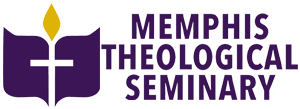Spiritual Direction prepares those who desire to explore their own relationship with God and to help others through the art of contemplative listening and discernment develop a deeper wisdom and connection into their own spiritual lives using both biblical and theological studies with specific training necessary for spiritual direction.
The Curriculum
The three year MAJS program combines MTS’s expertise in Bible exposition and theology with MJTA’s and ICB’s expertise in Jewish history, literature, and ministry strategy.
Core Courses
CM 101: Introduction to Theological Study for Ministry
HB 100: Interpreting the Hebrew Bible
NT 100: Interpreting the New Testament
HT 100: Christian Heritage I
HT 200: Christian Heritage II
ET 200: Christian Ethics
Cultural Context
2 IFCs: Interfaith/Intercultural Elective (1 with immersion)
Personal and Spiritual Formation
FM 100: Formation, Spirituality, and Ministry
FM 200: Formation and Contextual Ministry
Specialization Courses
SD 200: Introduction to the Art and Practice of Spiritual Direction
SD 202: The Essential Enneagram
SD 203:History of Christian Spirituality
SD 205: The Practice of Discernment
Elective
One additional elective from the following:
SD 206: Ethical Framework for Spiritual Direction
SD 207: Spiritual Direction and Cultural Competence
SD 208: Spiritual Direction and Social Justice
Integrative Seminar
CM 350: MACM Integrative Seminar and Practicum Project
Program Details
What you'll experience
• Our classes integrate ministry experiences with ongoing theological reflection. Students will develop skills to prepare for creative and sustainable ministry.
Engaged Faculty
• Students will gain wisdom from faculty experienced in nonprofits, community organization boards and a variety of ministry settings. Our faculty are deeply committed to applying theological scholarship to ministry contexts.
Expanded Network
• Connect with students and faculty from various backgrounds and denominations. Diversity is a staple of the MTS experience.
Course Requirements
48 total credit hours
Colloquia Credits
All master’s level students are required to complete a number of colloquia credits in order to graduate. Please see the Colloquia Credits policy.
If colloquia credit events are attended, students need only to sign-in as they attend the event to receive credit.
If students make up credits by viewing videos of the events online (please be aware that Sunday Morning Seminary/Pulpit & Pew lessons do not qualify as colloquia events) they will need to submit a completed Colloquy Summary and Response Form to the registrar’s office: Word | PDF
Why Spiritual Direction?
Do you want to grow in and explore your relationship with God and help others to do the same? Spiritual directors are spiritual companions who encourage persons to examine and expand their spiritual lives.
Why Studies in Spiritual Direction?
A good spiritual director has biblical and theological grounding in the spiritual life, training in the arts of listening and discerning, and practice in the spiritual disciplines. The Certificate in Spiritual Direction or MACM or MDiv with a Spiritual Direction Specialization combines biblical and theological studies with the specific training necessary for spiritual direction.
Become Part of a Community of Learning and Practice
Whether one is seeking the Specialization in Spiritual Direction within the MACM or MDiv degree programs, or seeking the Certificate of Spiritual Direction, the heart of the program is student involvement in a community of learning and practice. Students in Spiritual Direction form a community that takes classes together, meets monthly to reflect on what they are learning and how it will inform their practice of spiritual direction, and gathers for a retreat to explore their own spiritual lives and how this will shape their practice of spiritual direction.
Courses in the Art of Spiritual Direction, Prayer and Spiritual Disciplines, the History of Christian Spirituality, and the Practice of Christian Discernment form the core requirements. Students may also take classes in the Ethical Framework of Spiritual Direction, Spiritual Direction and Cultural Competence, and Spiritual Direction and Social Justice, among others.
